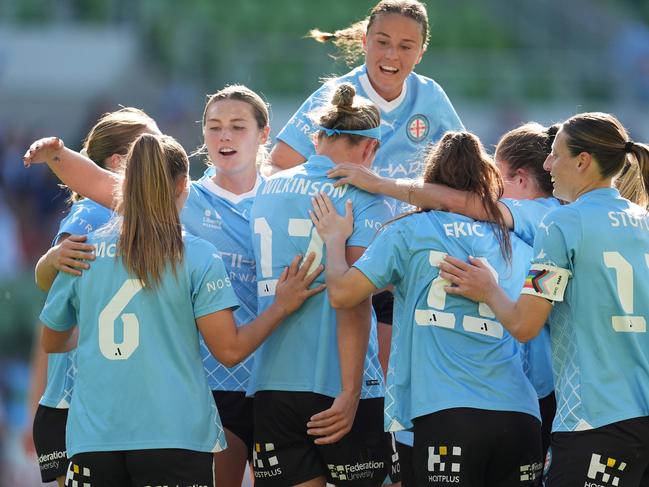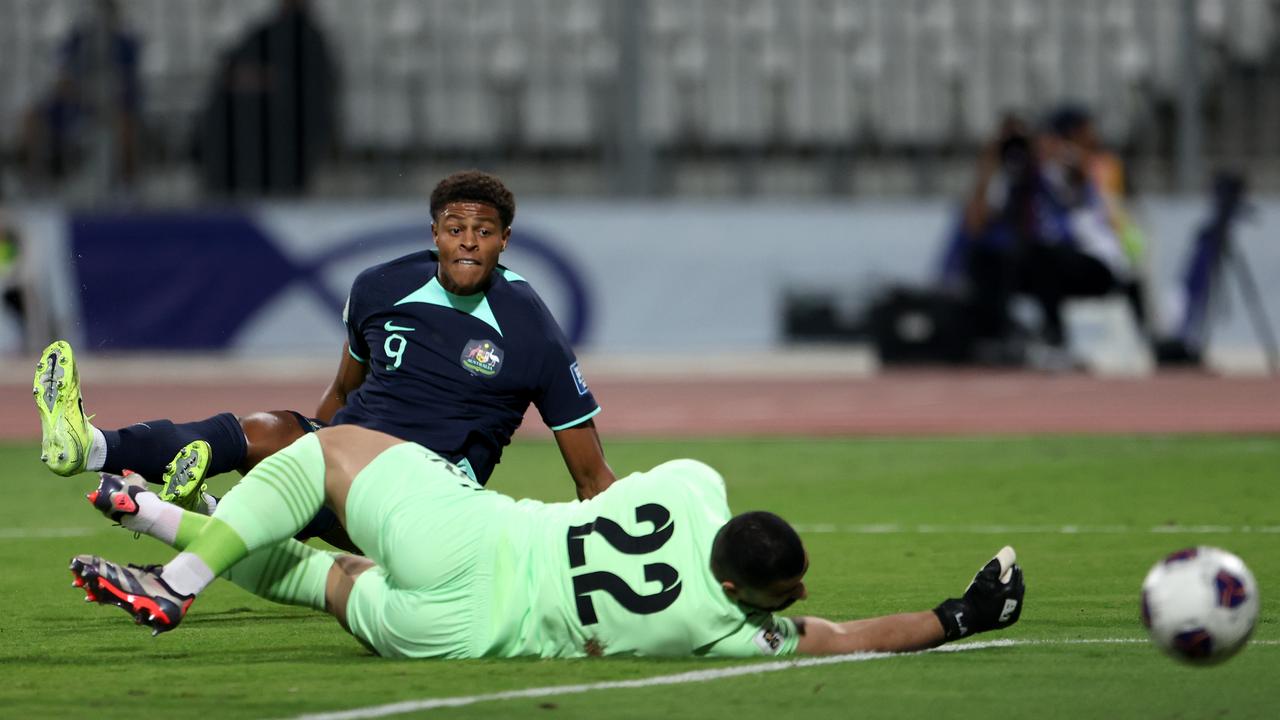Players union concerned AFC Women’s Champions League will be a burden on clubs and players
It hasn’t kicked off yet but FIFPRO Asia have serious concerns about the financial strain the AFC Women’s Champions League will have on clubs, athletes’ welfare and disruptions to domestic competitions.

The first stage of the inaugural AFC Women’s Champions League kicks off this weekend and the players’ union already has serious concerns about athletes’ welfare, playing conditions and financial affects on clubs.
The tournament will involve 22 clubs from 22 different Asian Football associations and last year’s A-League Women’s premier Melbourne City has earned direct qualification into the group stage.
The preliminary stage, in which 14 clubs will fight for the final four spots, starts on Sunday.
Melbourne City will play in the group stage in Thailand from October 6.
The tournament is a revamp of the previous AFC Women’s Club Championship, which started with just four clubs and grew to eight last year.
A report and player survey published by FIFPRO Asia raises serious concerns about the tournament and questions whether it added any value to the players or women’s game in its current format.

Unlike the men’s competitions across Asia, the majority of women players are semi-professional.
The report found that fewer than half earned more than $US10,000 ($14,858) from football per year.
A quarter of women players said football was not their primary source of income.
The tournament, played in November, affected more than half the players’ domestic seasons. When Sydney FC took part in last year’s tournament it missed several early rounds of the A-League that had to be rescheduled to midweek games, which only added to an already hectic program.
Just 39 per cent of players said they felt physically and mentally prepared for the tournament.
Concerns were also raised about the accommodation, training facilities and transport.
The revamped competition will be played across seven centralised groups in seven different countries.
Only the quarter-finals will be played on home grounds.
The maiden #AWCL Group Stage cast is set!
— AFC Women’s Football (@TheAWCL) July 18, 2024
Thrilling action beckons as a new journey begins!
📅 October 6 - 12, 2024 pic.twitter.com/n5ELNmYOYG
The AFC is offering little financial compensation to participating teams.
There is a $100,000 travel subsidy for the group stage, which is not much when you consider Melbourne City has to travel to Thailand for its group matches.
There is also a small bonus of $20,000 for each win in the group stage.
The costs will skyrocket for teams that progress to the quarter-finals.
These matches will not be held in a central location and the financial burden will fall on clubs.
The away team must cover and pay for its own travel and accommodation.
The host club has to foot the bill for transport, five-star accommodation, buffet-style meals, laundry and SIM cards for the AFC delegation.
It will also have to provide a sponsor-free stadium, which also applies to the men’s competition.
Melbourne City said it cost the club $50,000 when it last had to provide a clean stadium.
FIFPRO Asia wrote it was a step too far for women’s football in its current state.
“These regulations are not fit for purpose for a women’s football landscape that still features semi-professional conditions and clubs with scarce resources compared to the men’s game,” the report said.
“For example, it is bad optics, at least, that AFC’s delegation and match officials should be afforded five-star accommodation and all-expenses-paid perks when the majority of players earn less than $10,000 from football each year.”

FIFPRO Asia/Oceania chair Takuya Yamazaki said participating in continental club competitions in Asia significantly affected players across a range of areas.
“The tournament’s schedule and structure must consider the semi-professional status of many female players to minimise disruption and reduce, rather than compound the financial strain these players are feeling,” he said.
“The AFC’s unilateral decision-making must change to ensure the success of continental competitions.”
FIFPRO Global and Asia/Oceania board member and former AFC Women’s Player of the Year, Kate Gill, said players wanted to see the women’s game grow but it had to be sustainable.
“Whilst the potential of the women’s game in Asia is immense, we must ensure it is developed in a way that is responsive to the lived realities illustrated in this report,” she said.
“This can only occur through establishing a genuine partnership between the AFC, leagues, clubs and players, and not through unilaterally overlaying regulations that are fit for men’s competitions on to female competitions.”





